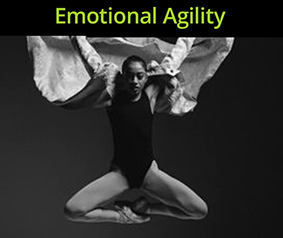Think for a moment what has pushed you off balance recently. A television news story? Reading about the ongoing impact of climate change? A difficulty your child is facing at his school? From one perspective, these stories about these events are simply facts, but at the same time, they had a profound impact on you emotionally. They pushed you, not just out of your comfort zone, but off balance to the degree you felt it physically. How do you react when things like this occur? It might be by swearing, catching your breath or sitting down. Those are signs that your rhythm and balance are being challenged. Another and potentially more important question is how do you respond? If you find yourself lingering in confusion or feeling out of sorts, it is because you haven’t yet been able to bounce back to your place of balance. That skill is called resilience, and the good news is that we can develop resilience through understanding and practice. First, though, we need to be clear what resilience is.
Without a specific definition, we might think it is the same as flexibility or agility, and while the three have aspects in common, they are distinct. Unlike flexibility, resilience literally means “to bounce back” and has a specific direction. It might be closer to agility, but agility means “to be quick or nimble.” It also lacks a direction, but if you think about bouncing back, there must be a place you are bouncing back to and a reason you are not there, to begin with.
Emotionally, resilience allows us to move back to the center of emotions, which is acceptance. Acceptance means “I acknowledge things are the way they are.” It does not mean I like them, endorse them or want them to be that way but only that I understand the situation as it is. In acceptance, we are free from resentment (the story that “it shouldn’t be this way” or “this isn’t fair”) and from resignation (“nothing I do will make any difference so why try?”). It gives us access to the emotions that move us forward such as ambition, enthusiasm, hope. We tend to confuse acceptance with “knuckling under” or “going along with it” and so don’t pay much attention to it but active acceptance is a powerful emotion and necessary to develop emotional resilience. Like all emotions, we have the opportunity to understand resilience better, befriend it, and employ it as a tool.
Using these ideas resilience can be viewed as a skill and something we need to practice if we want to build it as a competence. We can exercise in ways that increase our ease at balancing physically, we can practice quieting the mind, and we can strengthen our emotional resilience through acceptance.
Emoli™ Emotion Cards are a great way to build your vocabulary of emotions so that the distinctions between them become clear. Enjoy your learning and if you need support don’t hesitate to write to me at dan@schoolofemotions.world.



I have learned that when something happens to me that catches me off guard or impacts be dramatically, the best way for me to bounce back is to acknowledge and deal with it. I am very fortunate to have people in my life who allow me to speak my truths out loud. It seems that for me, I bounce back fairly quickly as long as I get my feelings out in the open. I think it took me a long time to learn this skill. When I was young, I kept many unresolved feelings inside myself instead of voicing them. The outcome for me was that I felt like these thoughts made me feel like I was “less than” or maybe even personal shame for having them in the first place. Somewhere along the way, I did learn that this was not healthy or useful; that positive and negative emotions are a part of all people’s experiences and that the only way they are harmful is if they are allowed to fester inside.